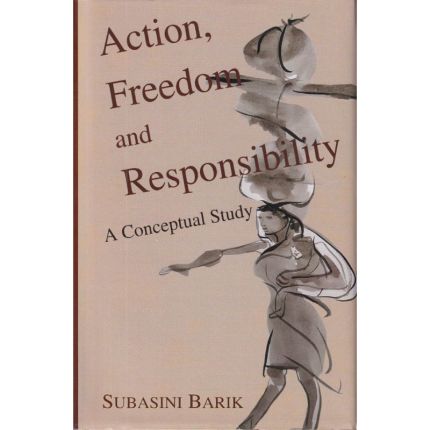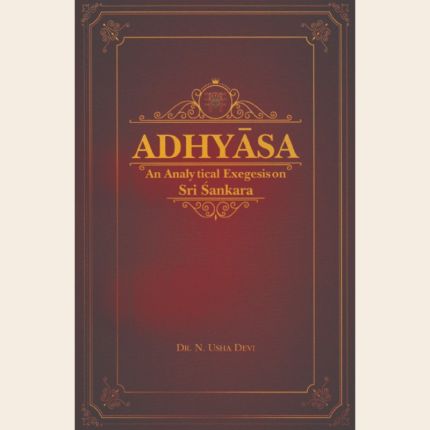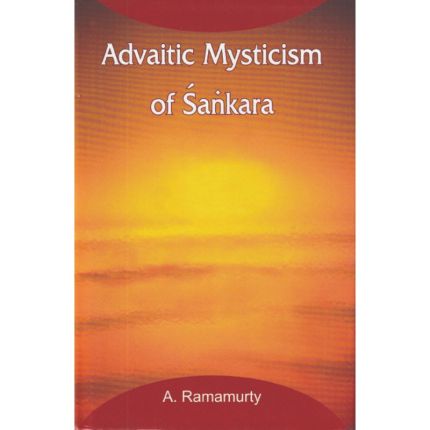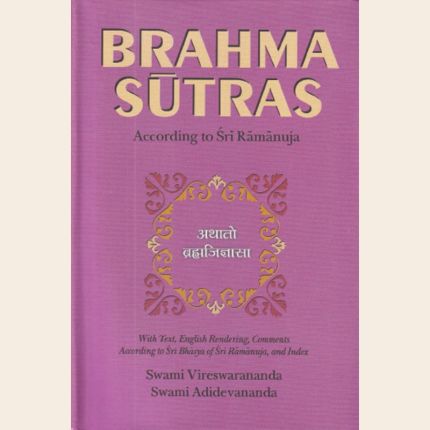
Indian Philosophy
A Course in Indian Philosophy
₹395Indian Philosophy its content is of course completely irrelevant to the world of greed and money-making which has replaced the remarkably idealistic societies emerging from the crucible of death and destruction in the Second World War. Then. the surviviors were glad to be alive and wanted to fill the mourning world with new joy, not with money.
A Critical Survey of Indian Philosophy
₹275This work under the title A Critical Survey of Indian Philosophy Philosophy was published in 1960 by Rider & Company of the Hutchinson Publishing Group Ltd., London. Its American edition under the title Indian Philosophy: A Critical Survey was brought out in 1962 in ‘University Paperbacks’ by Barnes and Noble, Inc., New York. The Publishers of this work in India are Motilal Banarsidass, Delhi. It is a pleasure to know that the work has been very well received and has run into several editions and imprints.
Adhyasa
₹295The concept of Adhyasa in its three variants has to be asserted from the non-contradictory ground of Reality. In this context, there is a need to differentiate ‘mere appearance’ (as it appears) and ‘the actual appearance’ (as it is) or the unmanifest Reality. It cannot be denied that the concepts of ‘Brahmatkaikya’ and ‘Brahmabhava’ created confusion in many thinkers, but the authentic explanations by Sri Sankara steadfastly made the Advaitic perspective unchallengeable in all the times.
Advaitic Mysticism Of Sankara
₹700This book attempts to elaborate and clarify Sankara’s understanding of brahmannubhava, in all its aspects, relying exclusively on his own writings. For this, not only the commentaries, but also the prakarana granthas have been taken into account. In the final chapter, brahmanubhava is compared with what was said about the mystic experience by two of the most authoritative exponents of christian and Islamic mysticisms, namely st, John of the cross and Jalalu’ d-Din Rumi, mainly to understand Sankara’s position without any ambiguity.
Bhasa Pariccheda
₹150The Bhasa-Pariccheda with its commentary, the Siddhanta-muktavali, by the same author, Visvanatha Nyaya-Pancanana Bhattacarya, is a manual on the Nyaya-Vaisesika Philosophy which is extensively read throughout India by all who want to get a fair knowledge of the subject within a short compass. Through inteded for beginners, it is a pretty difficult book, the chief reason for which is its extreme terseness. In 1850 Dr. E. Roer published an English edition of the Bhasa-pariccheda, with extracts from the Muktavali, which is long out of print. An English rendering of the work with the Muktavali was therefore overdue.
Brahma Sutras
₹250The present compendium in English of the Sri-Bhashya, is similar to an earlier one of Sri Shankar’s commentary on the Brahma-Sutras by Swami Vireswarananda. The foreword presents a scholarly resume of the Sri-Bhashya. The Introduction contains an illuminating comparative study of the commentaries by Shankara, Ramanuja, Vallabha, Nimbarka. and Madhva. It includes with a section drawing attention to the harmony underlying these different commentaries.













